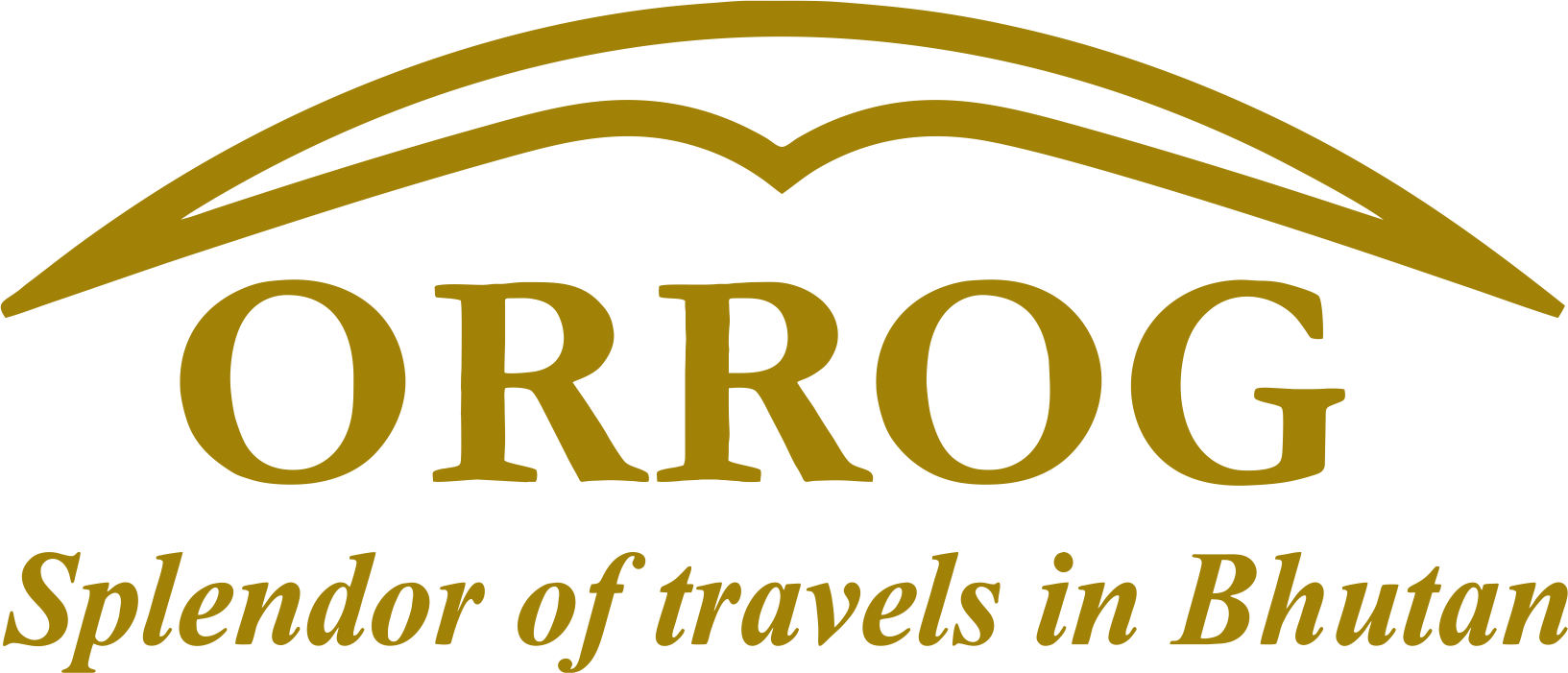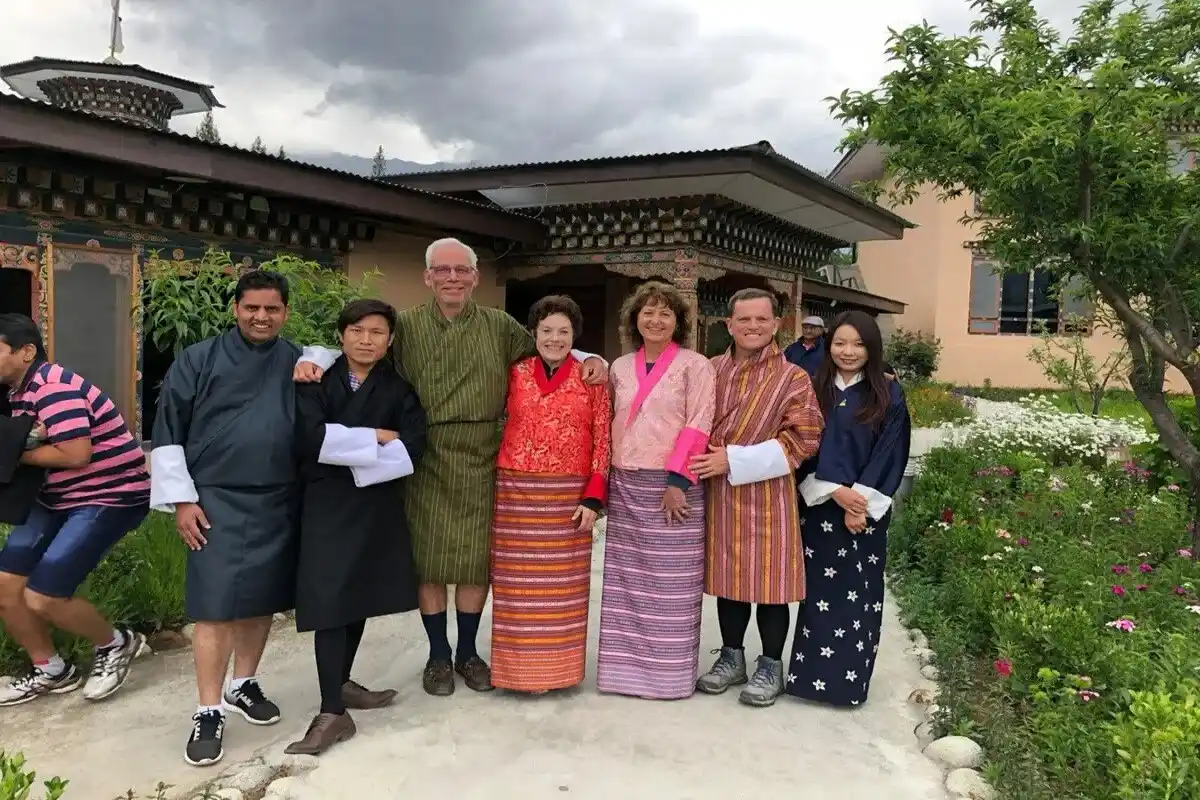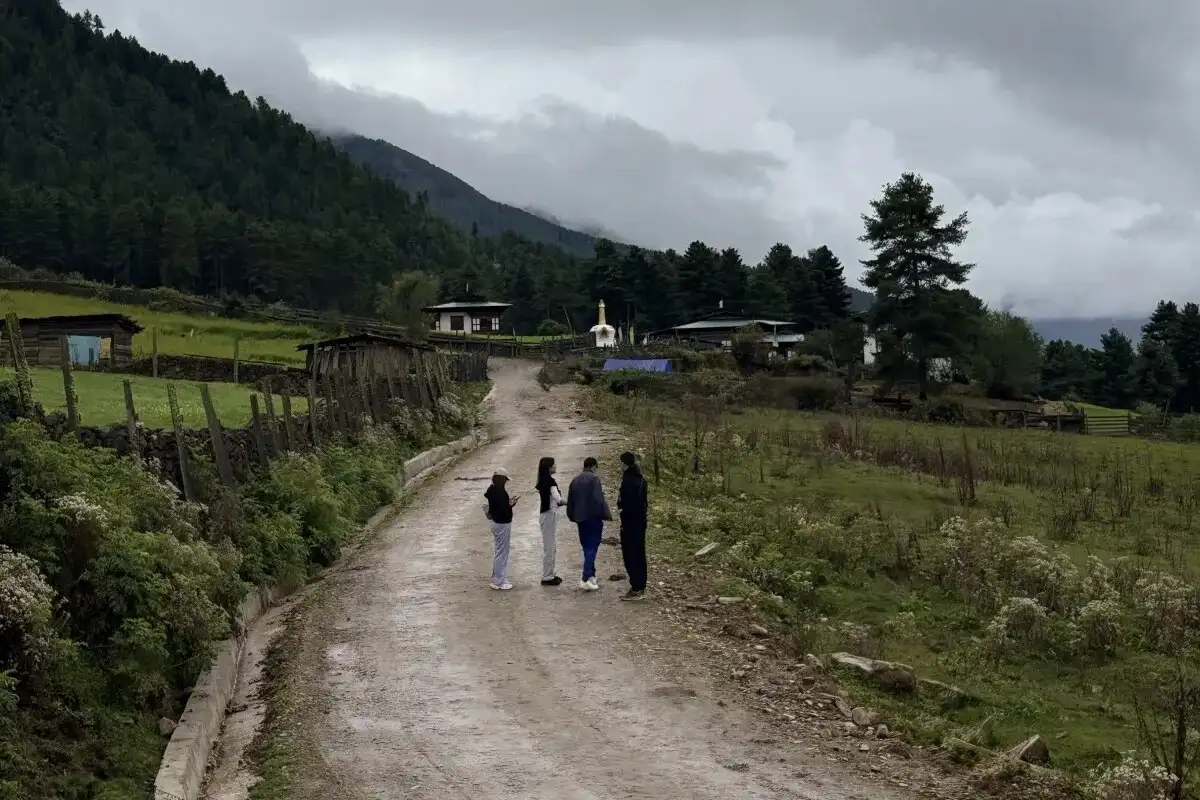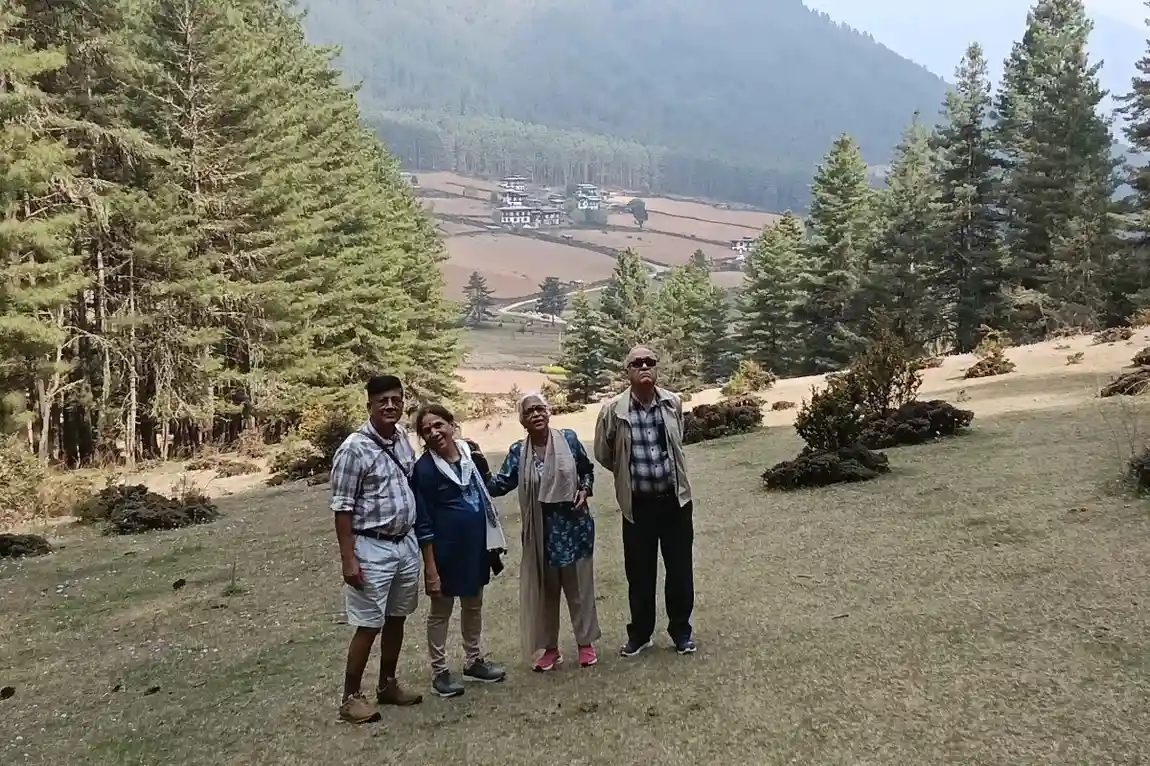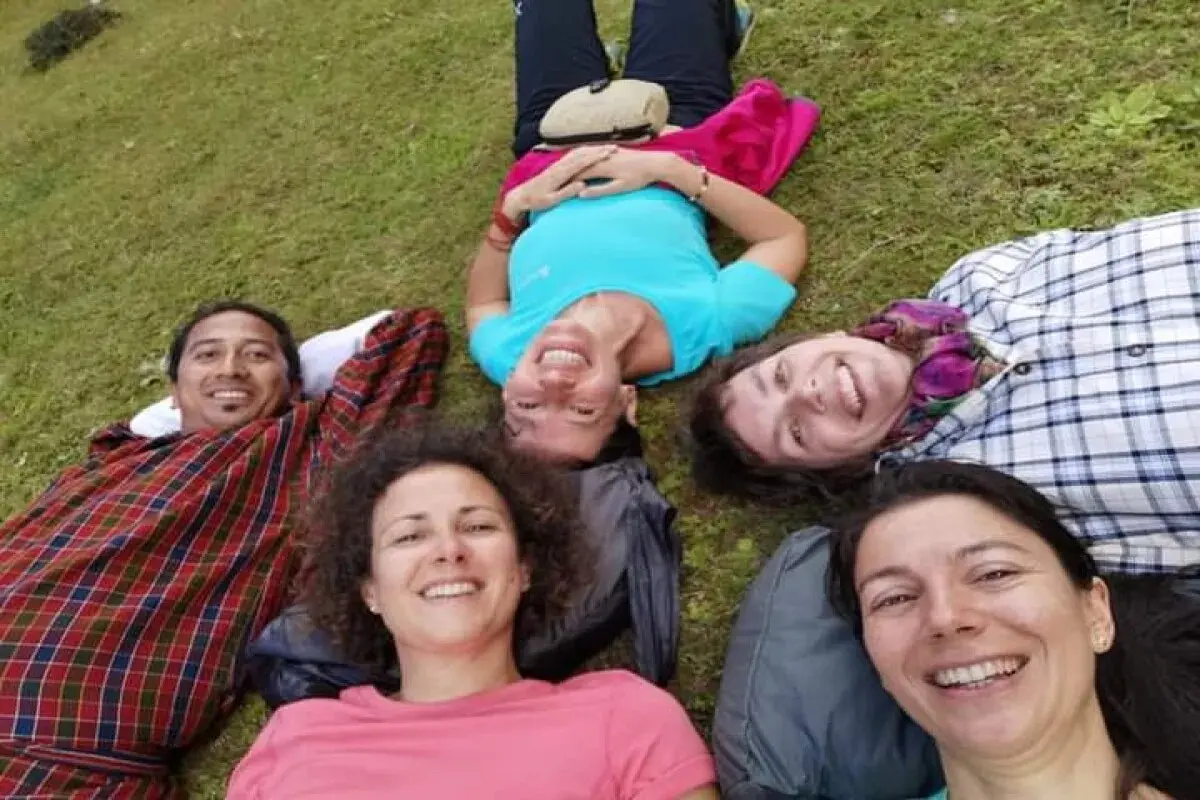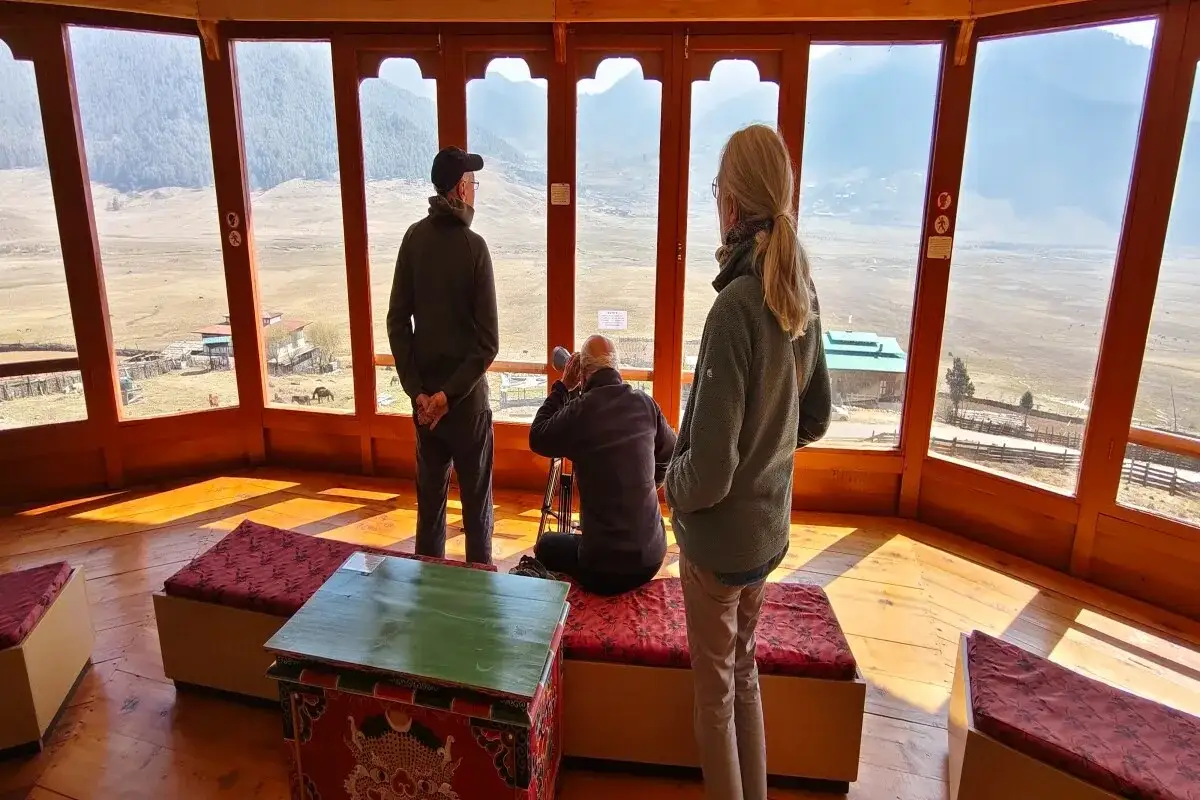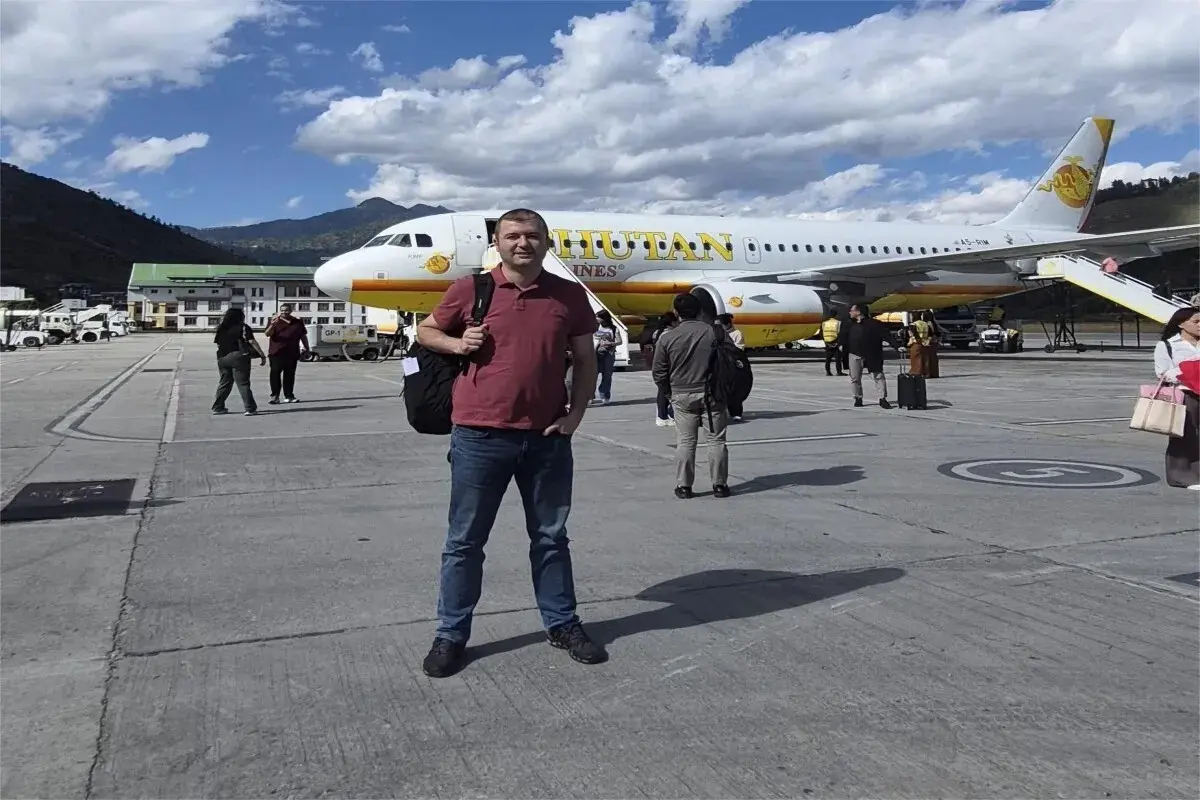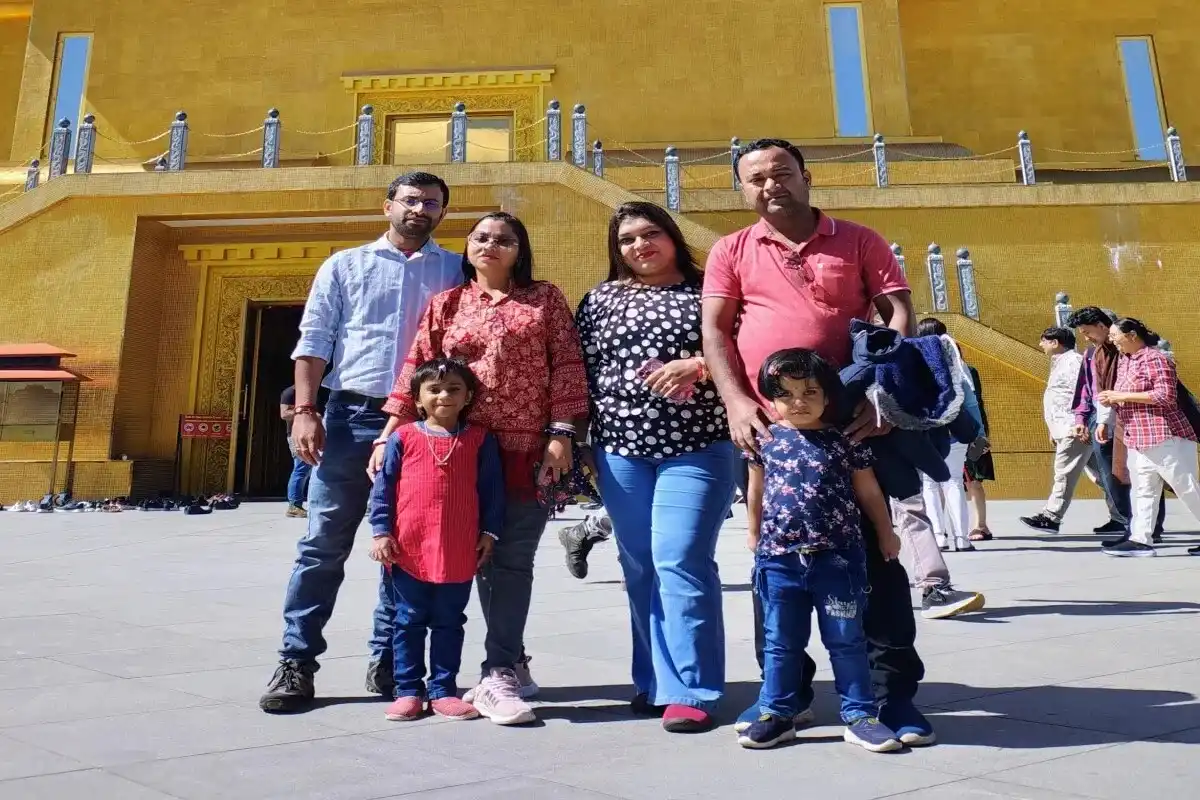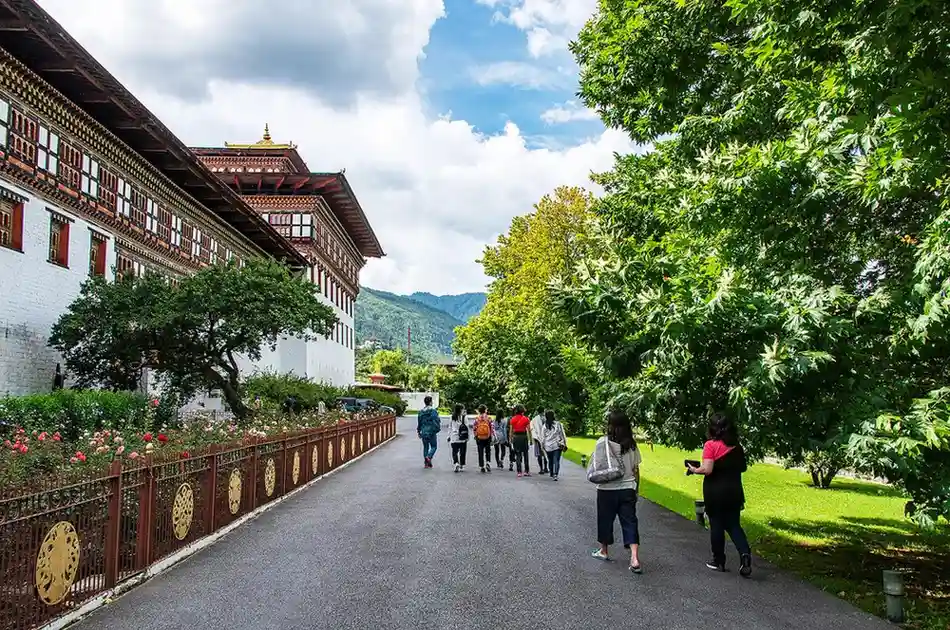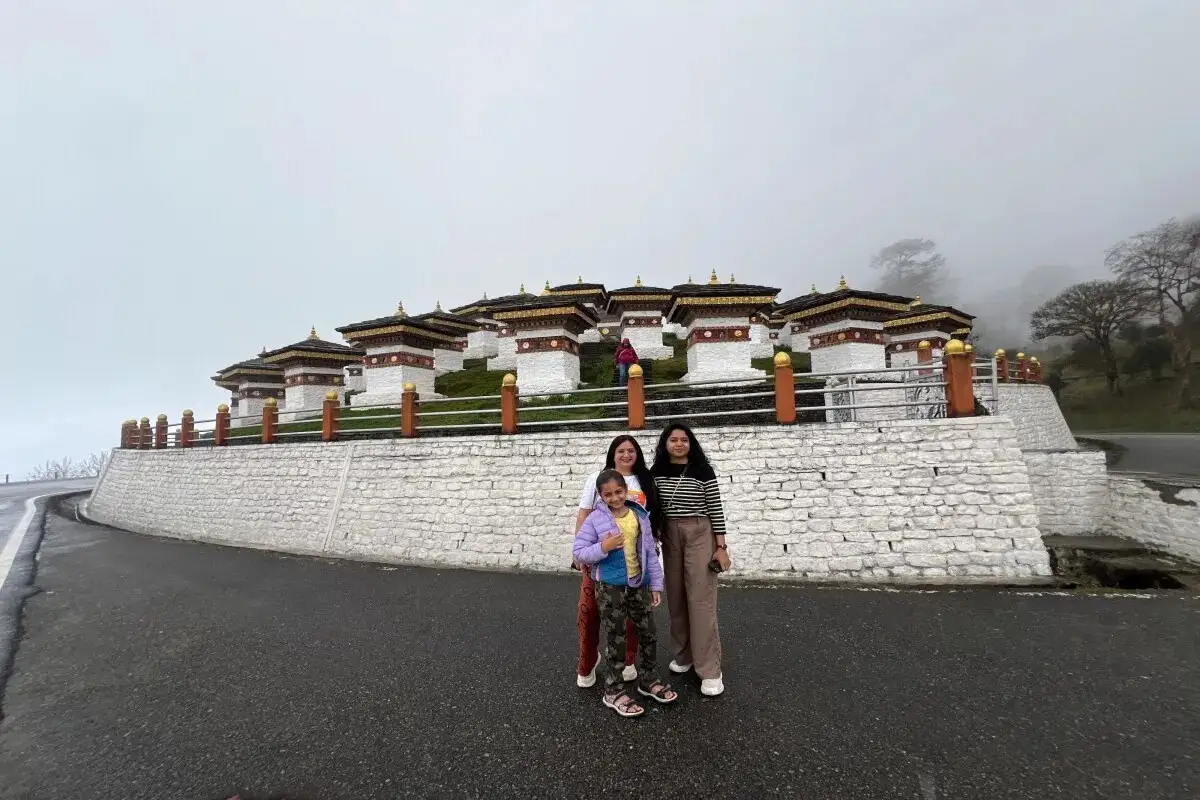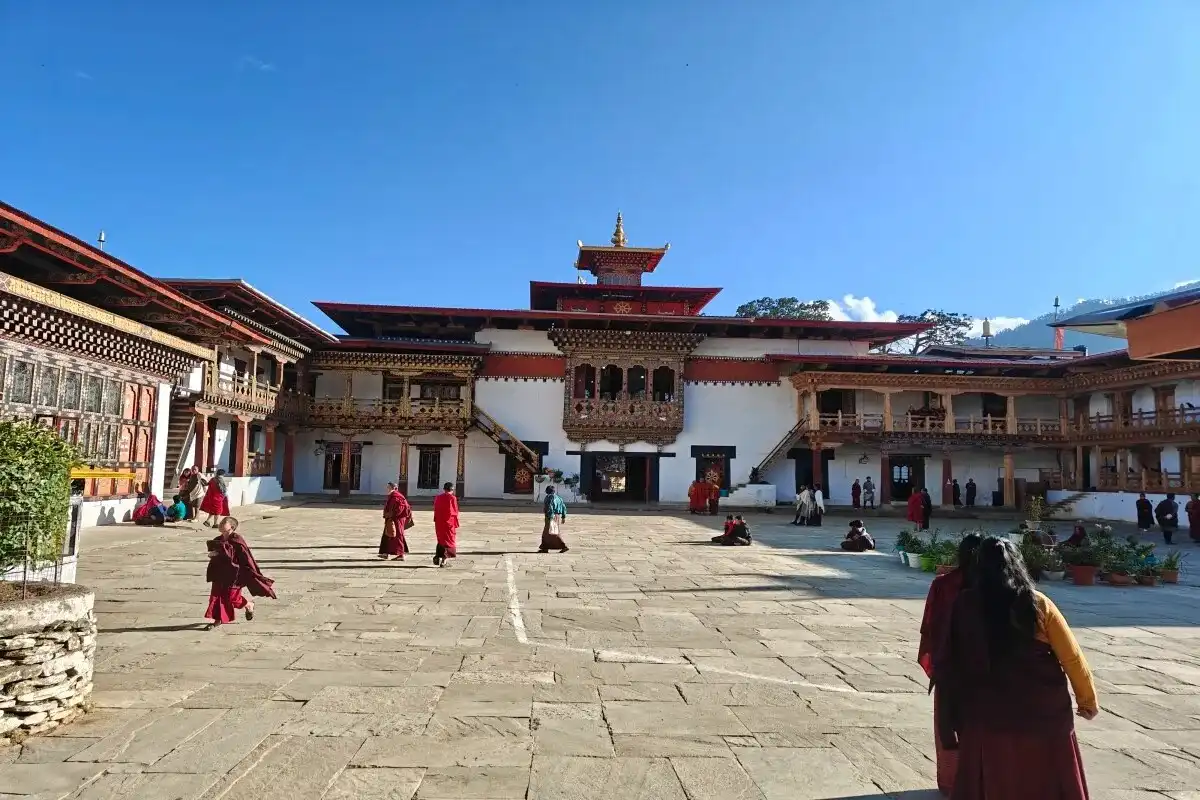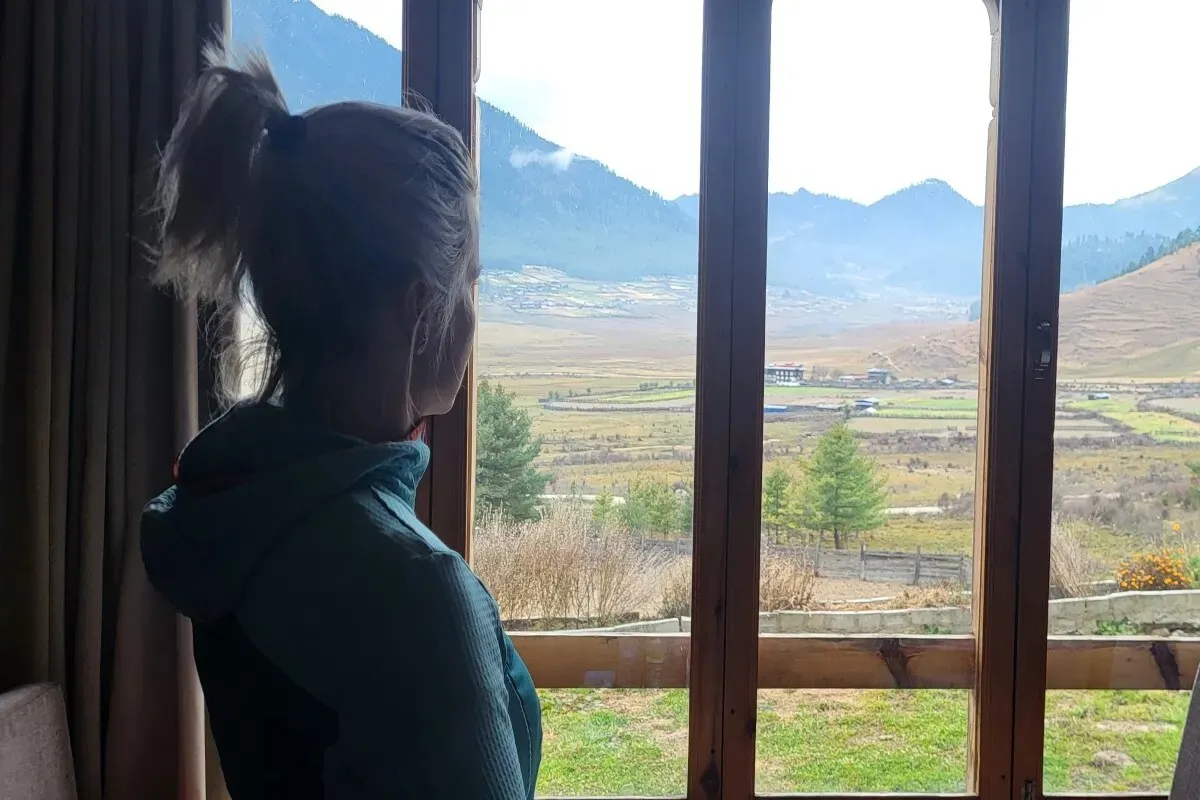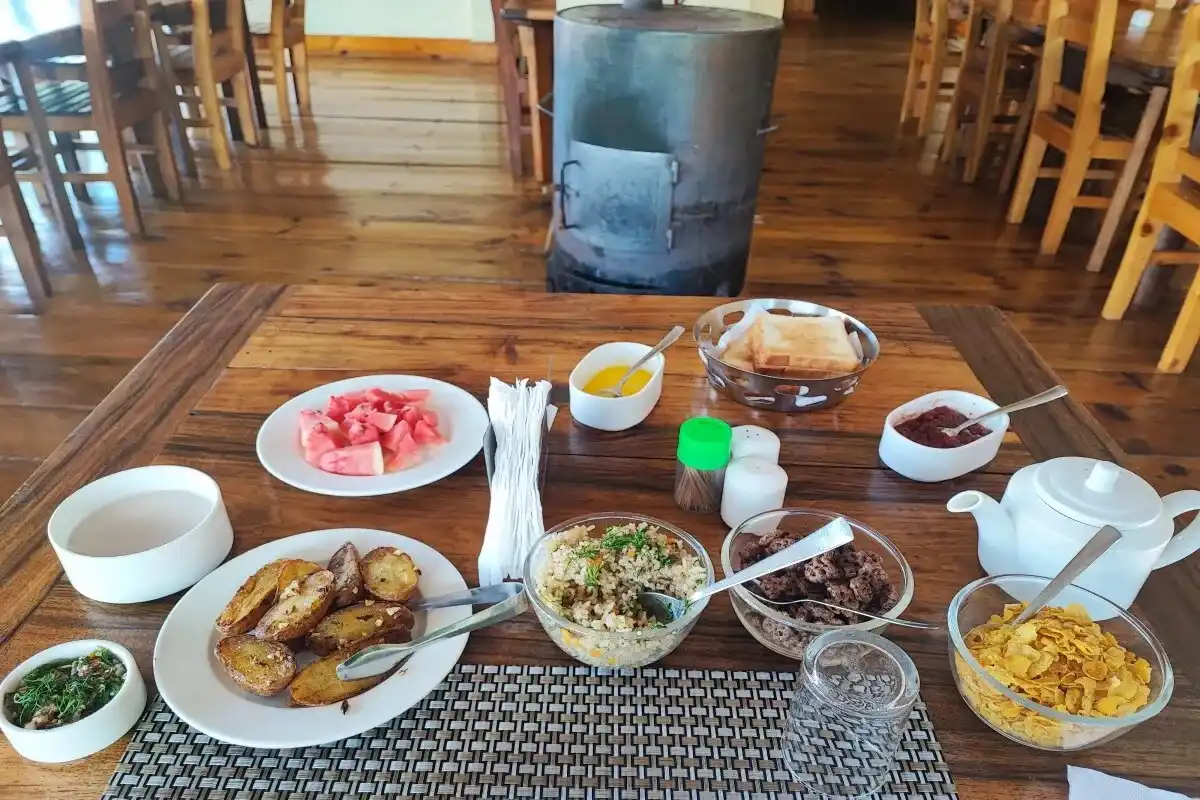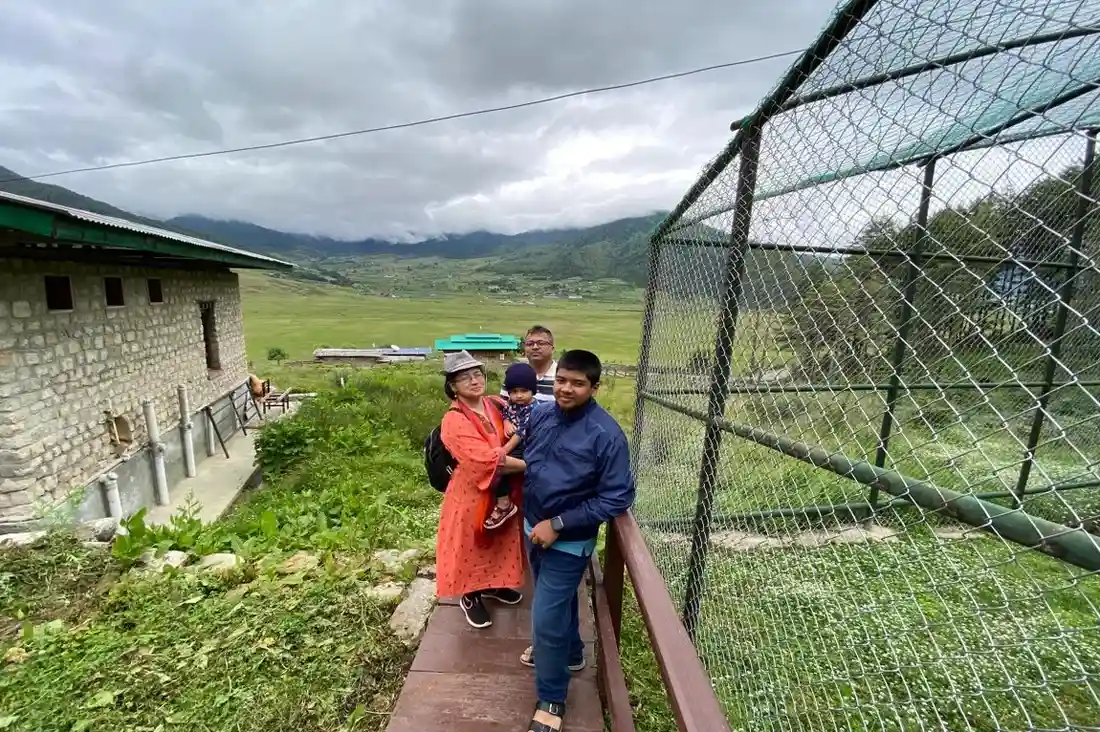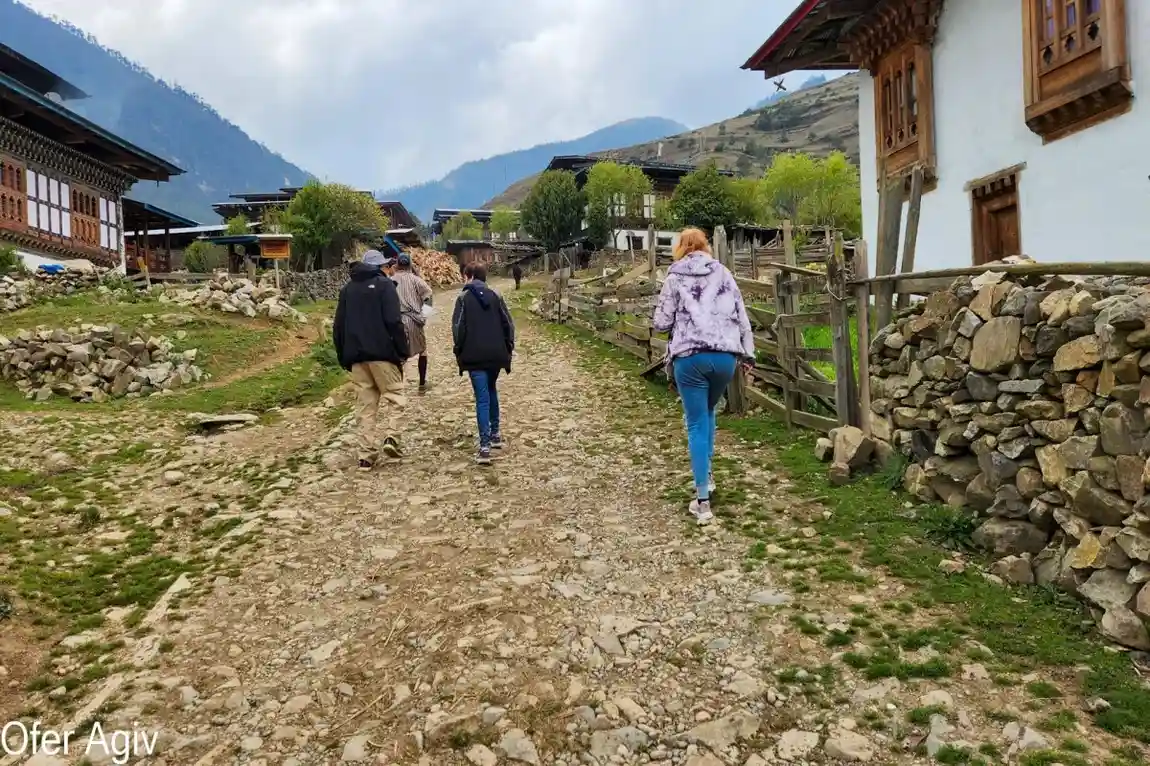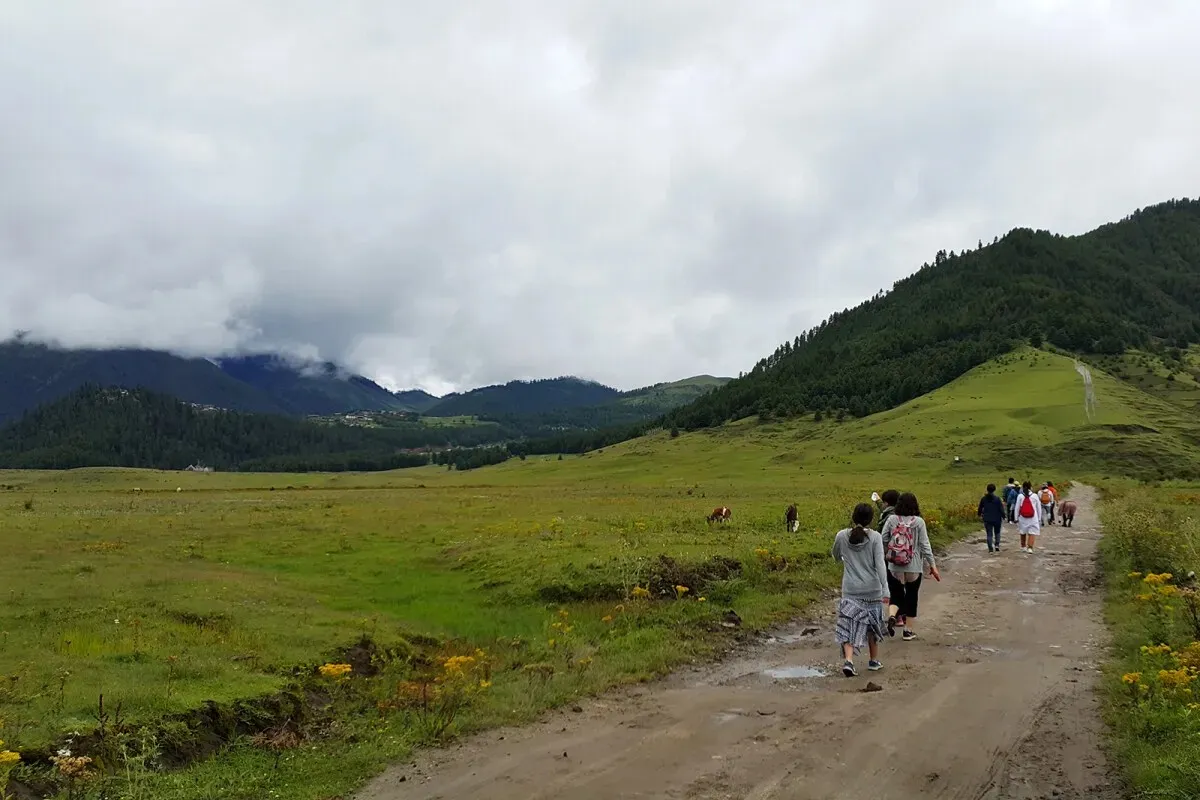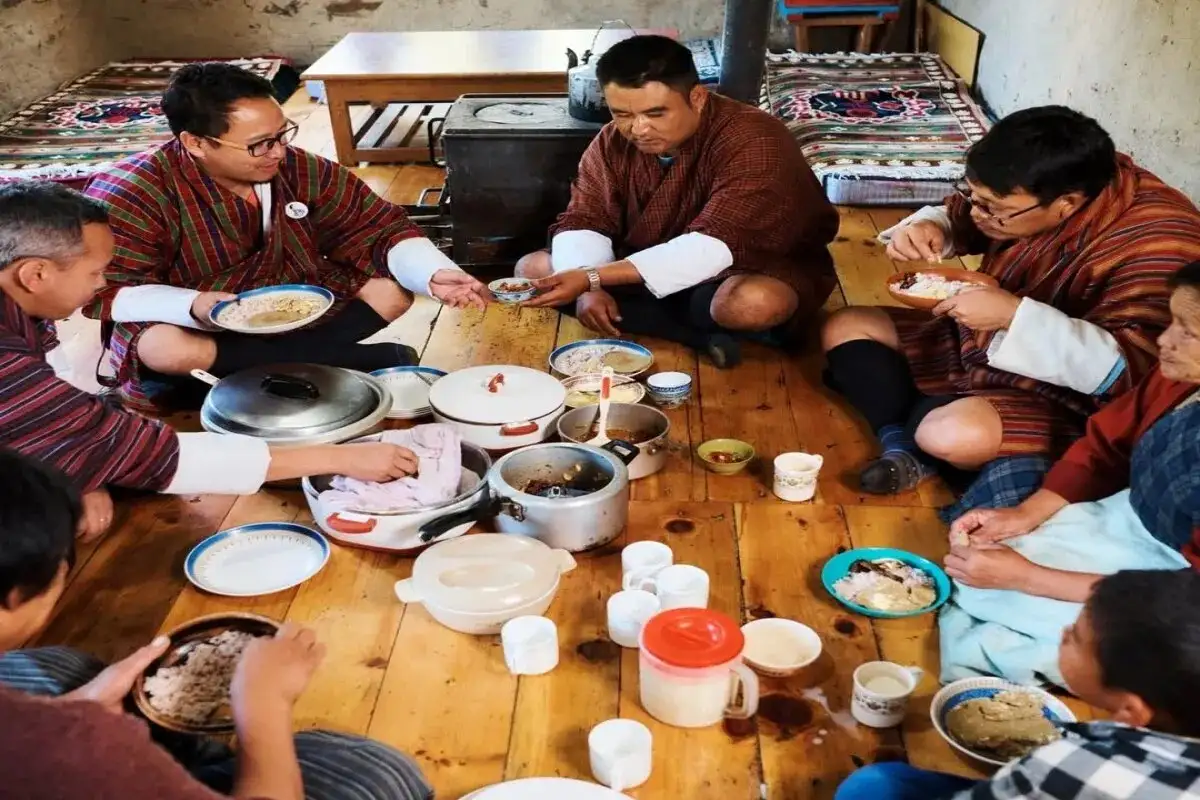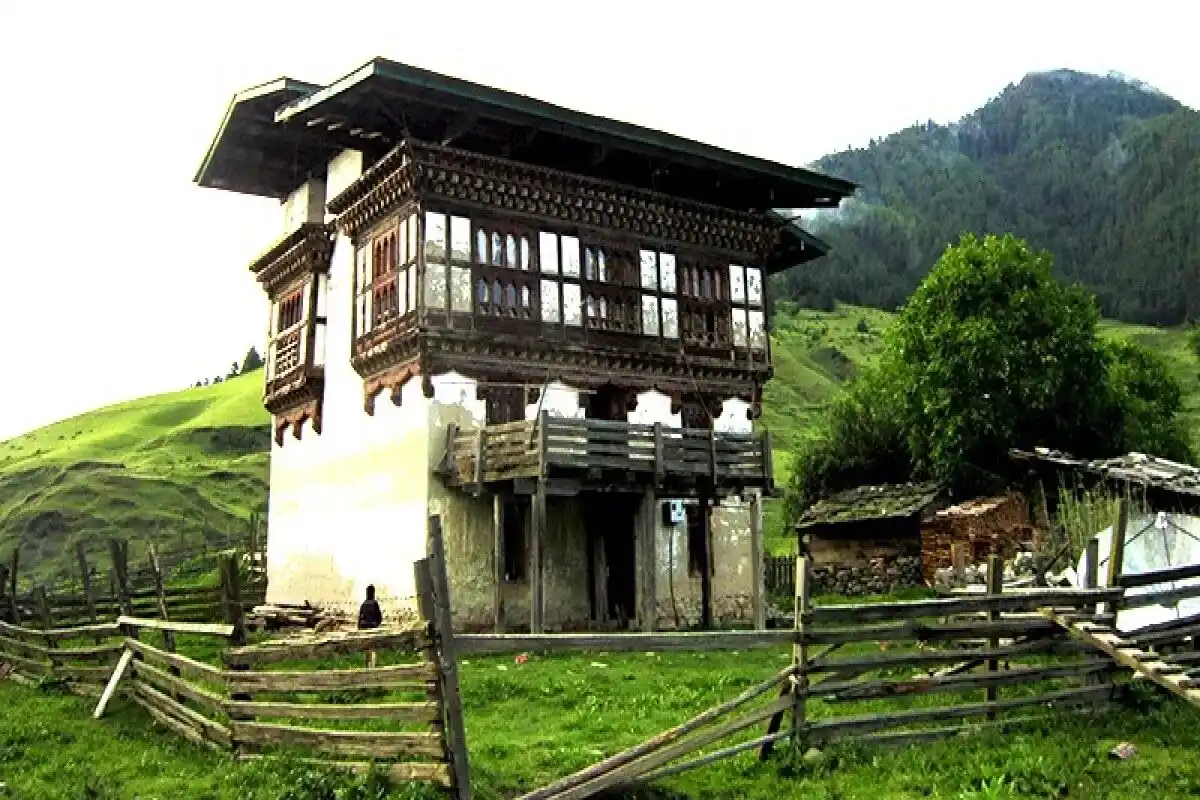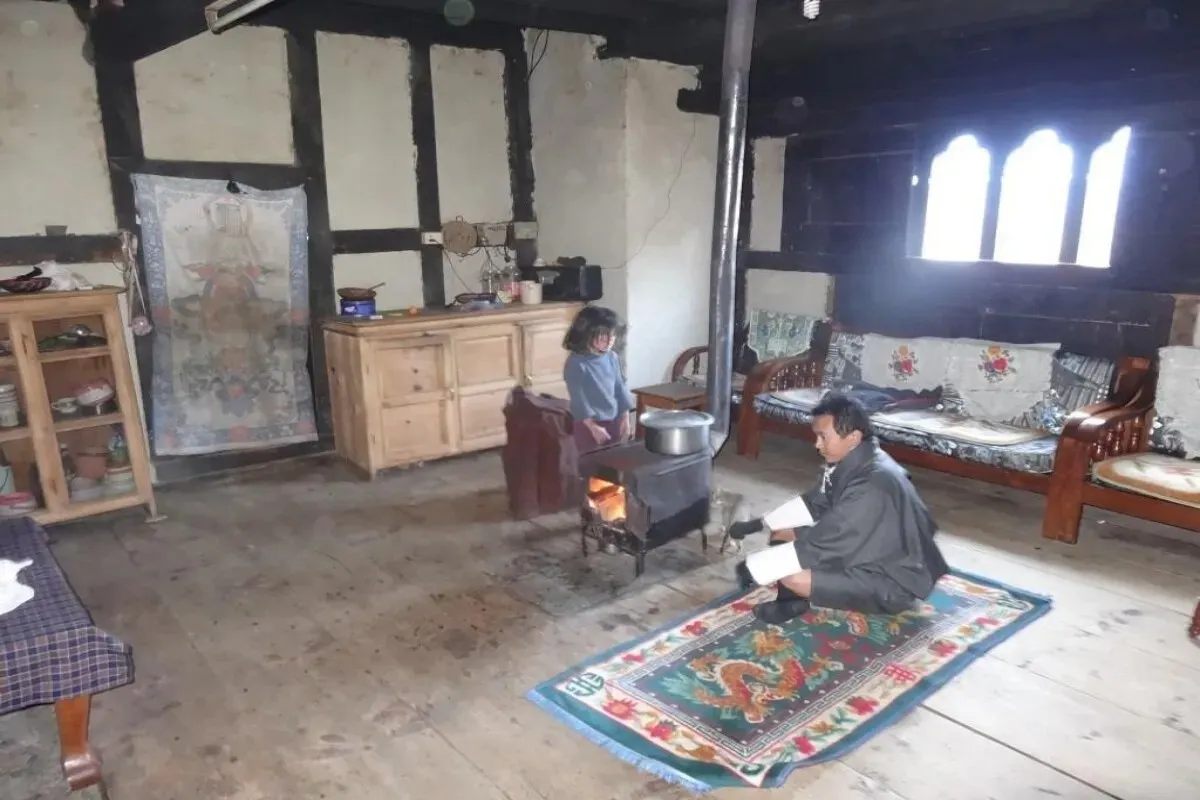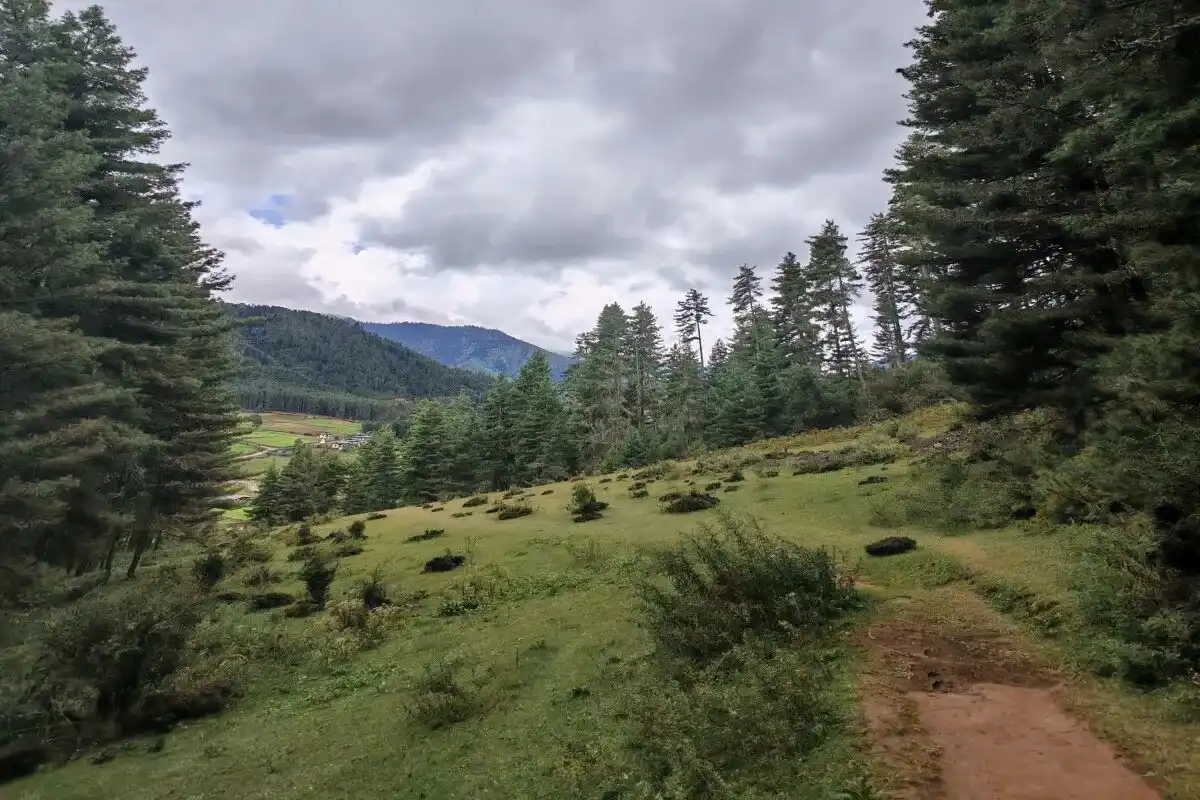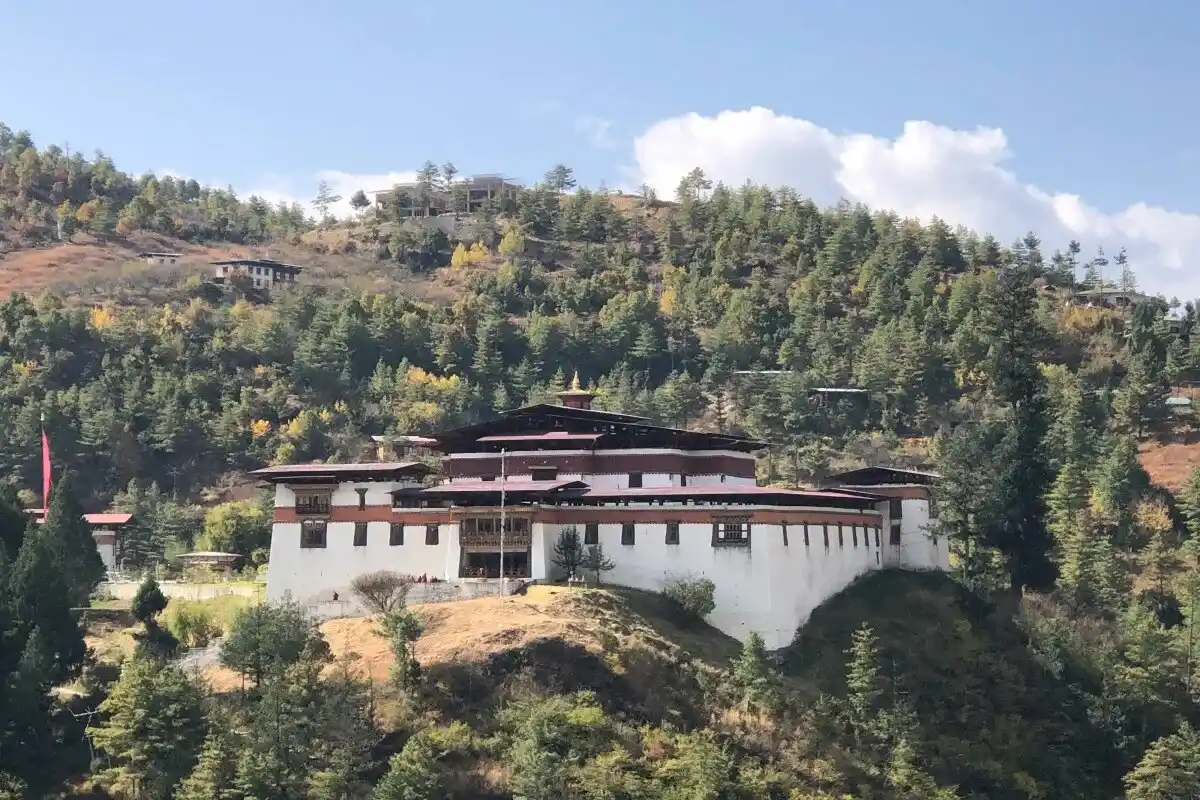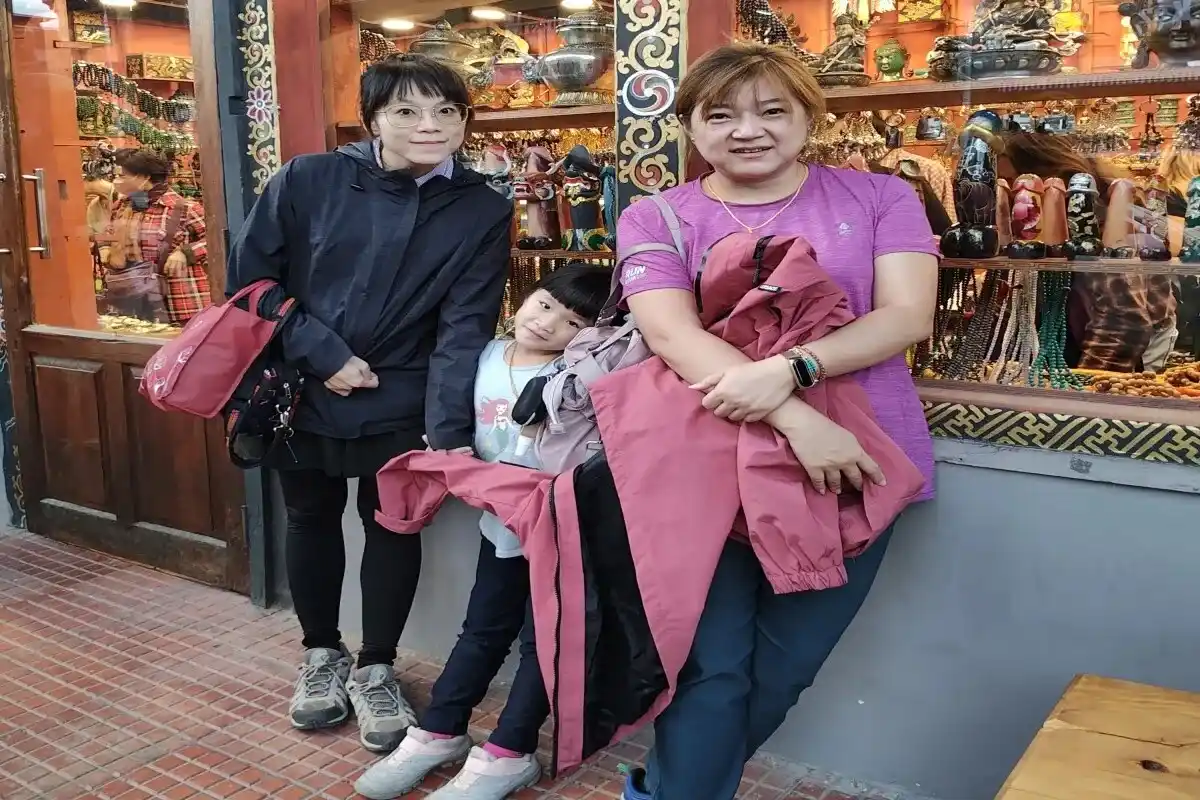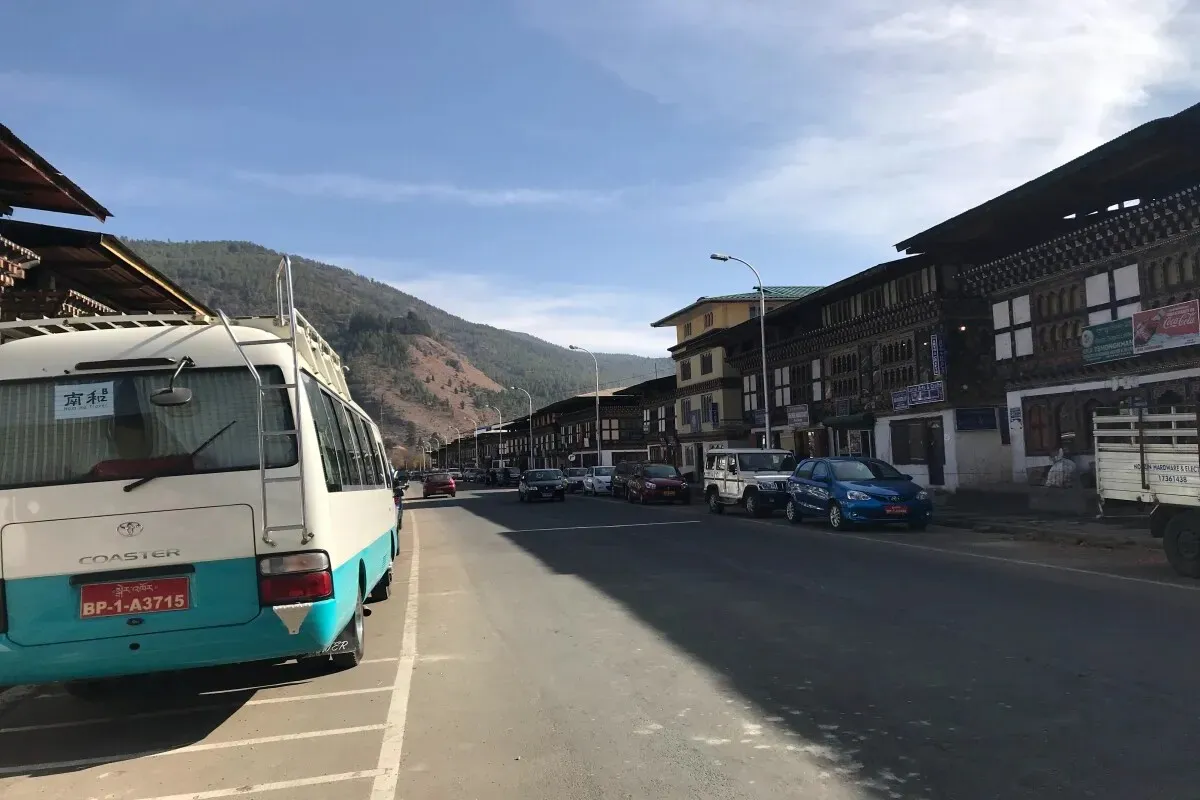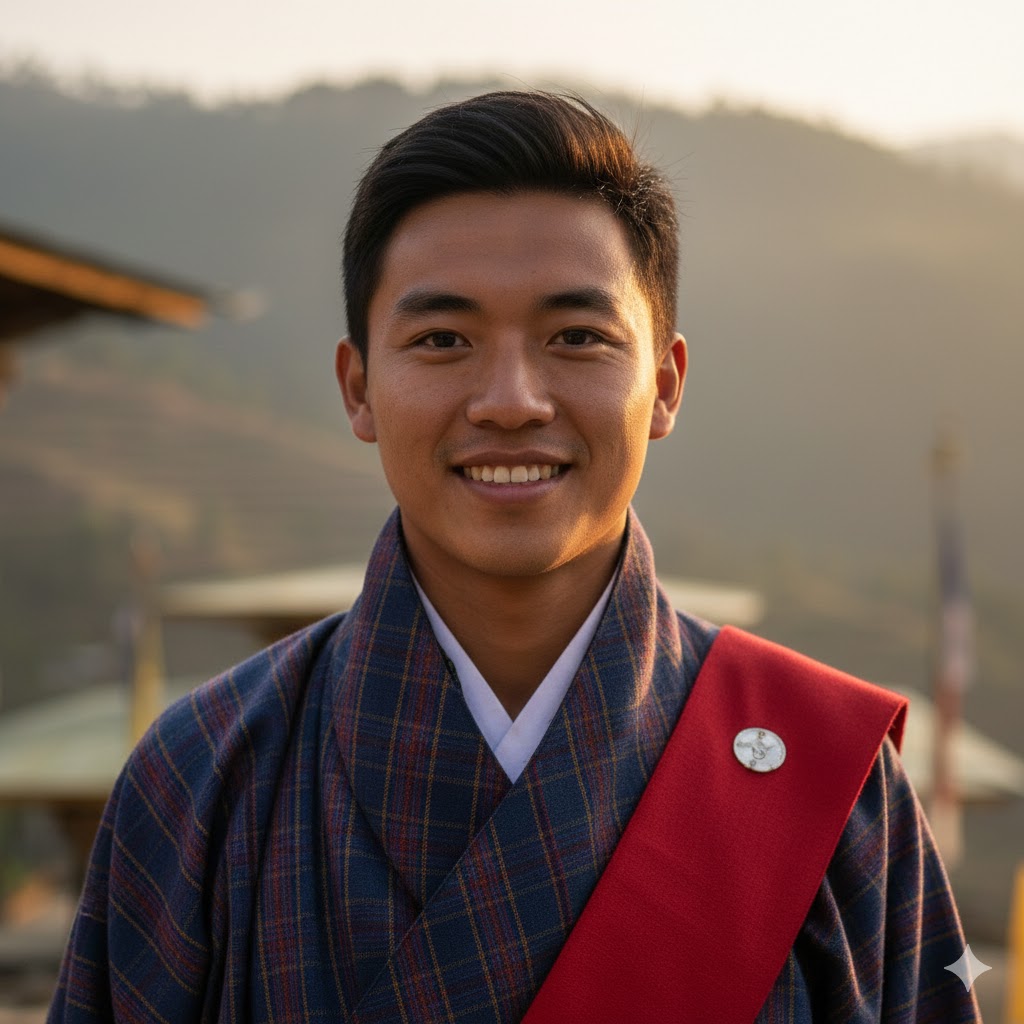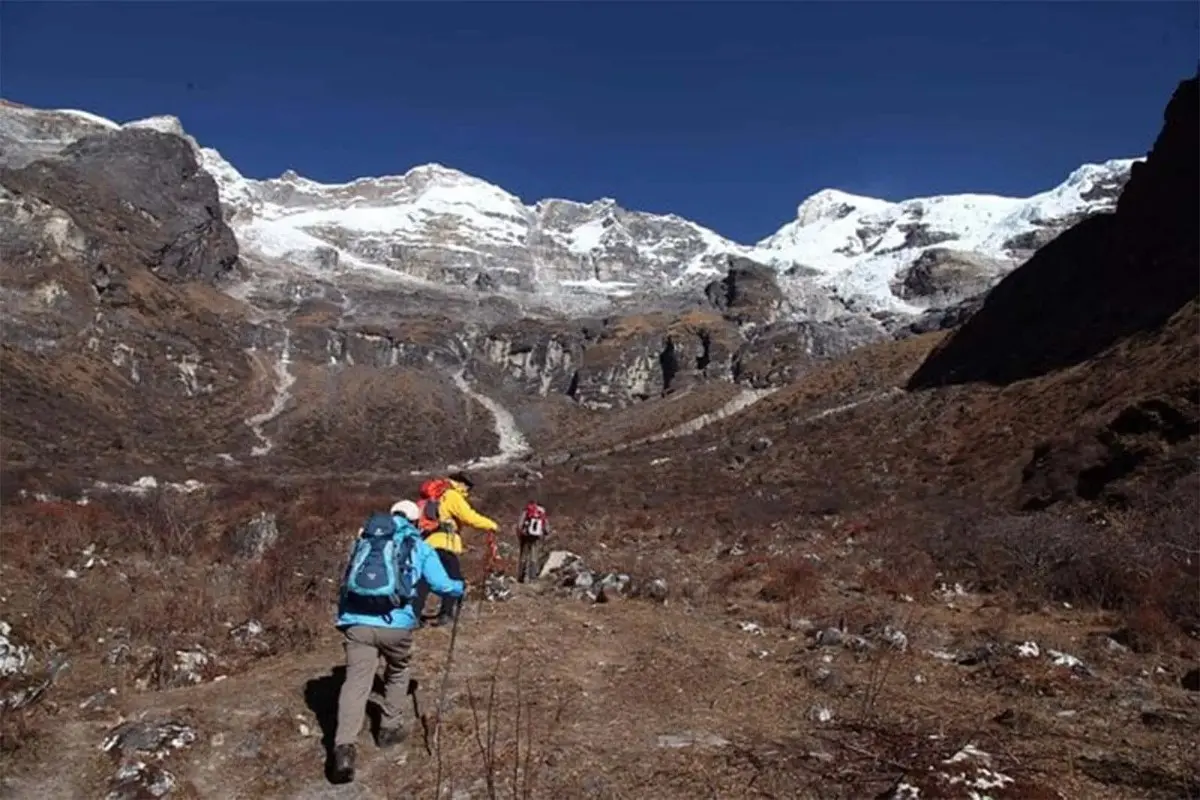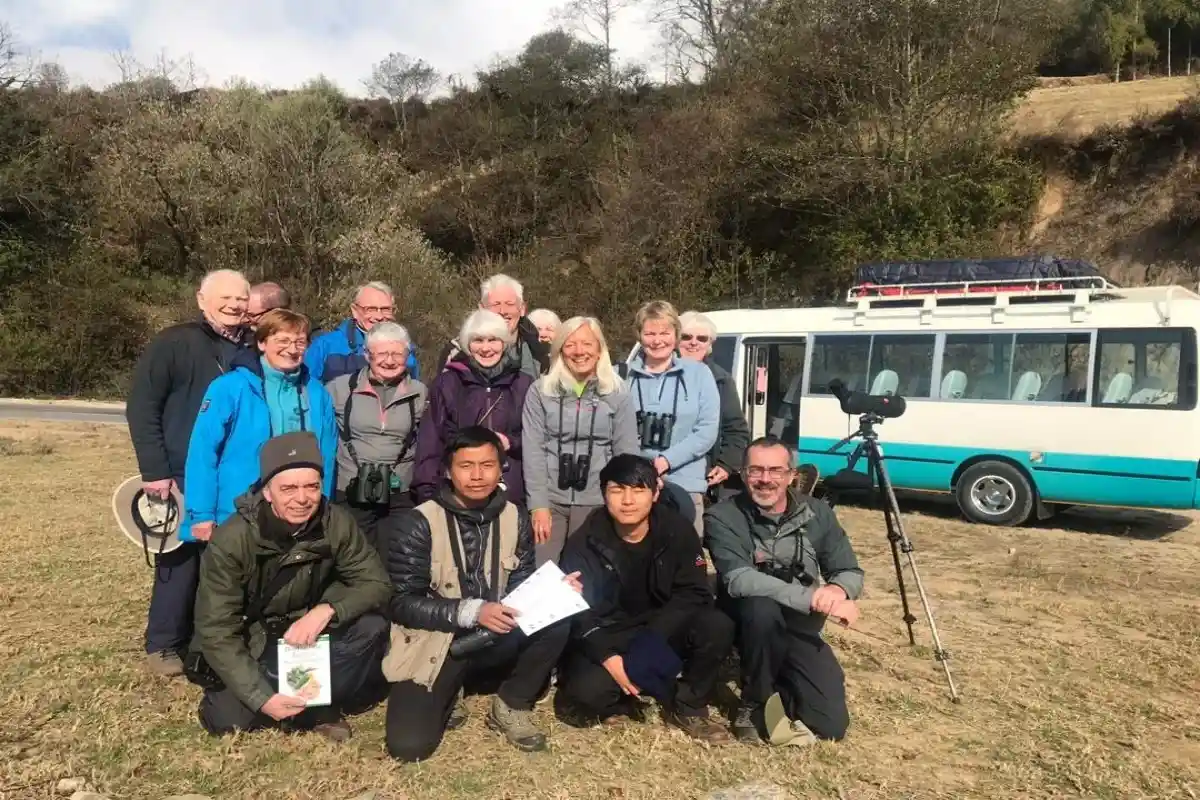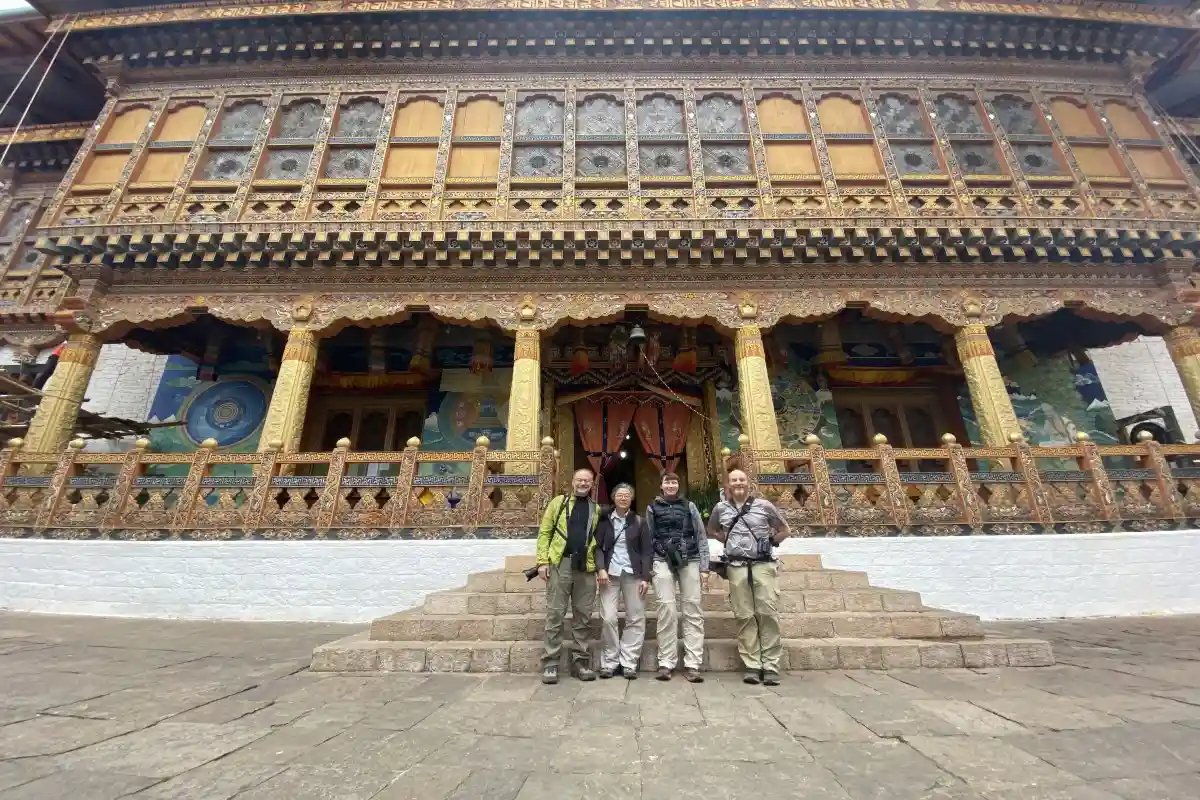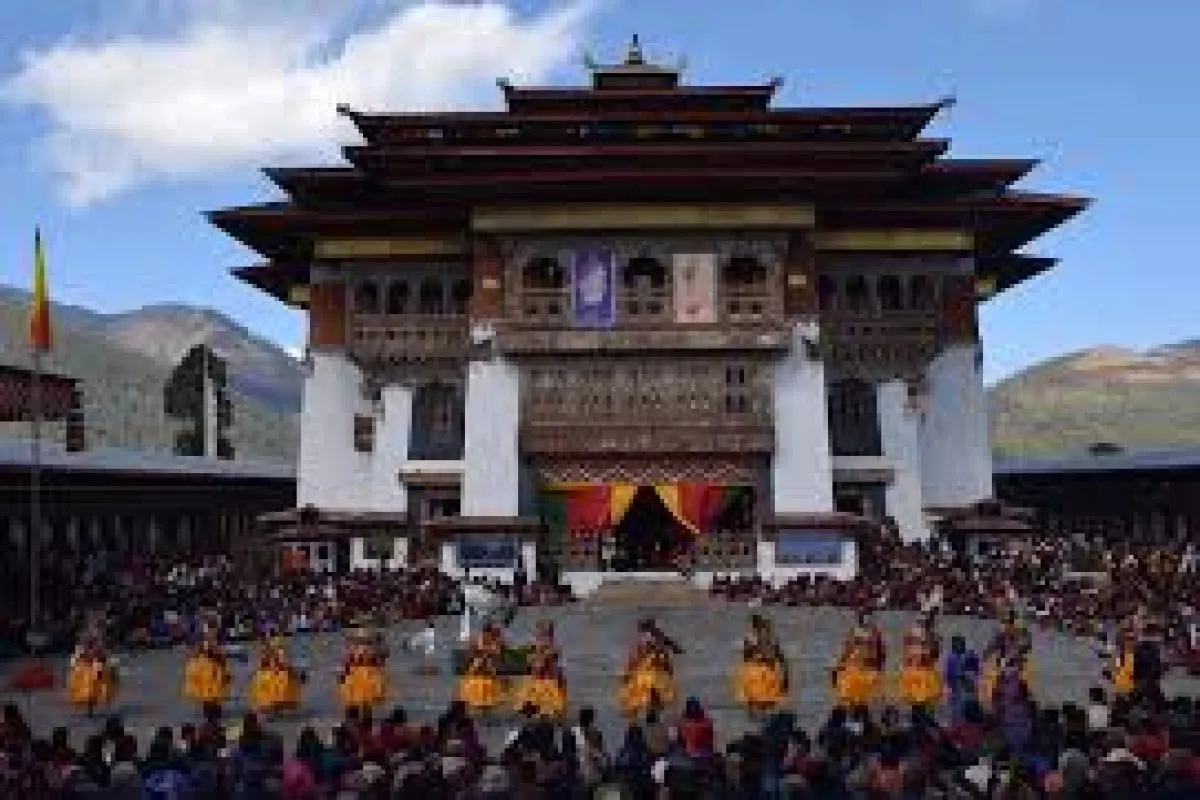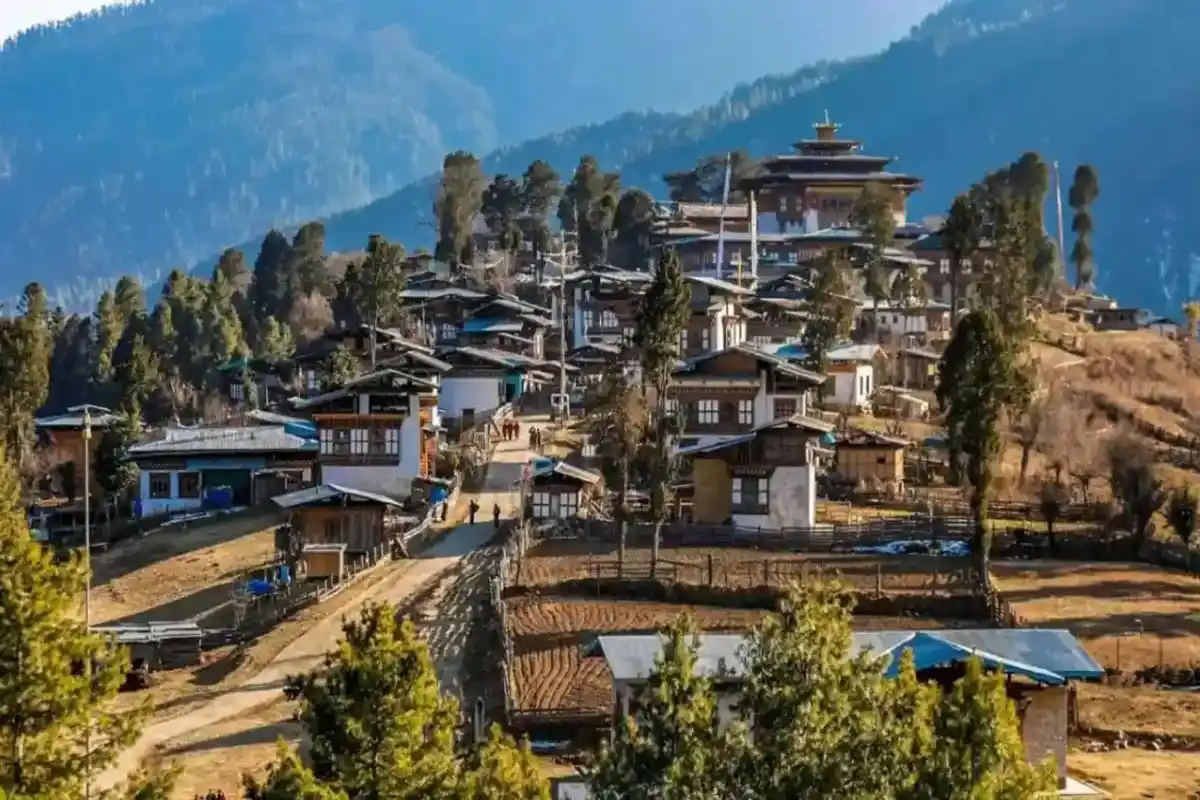Family Wildlife and Nature Tour in Phobjikha Valley - 7 Days
Bhutan is a country in the Himalayas. The lovely valleys that surround Bhutan make it an ideal place for a nature and wildlife study tour. The 7-day Phobjikha Valley trip, made for families, will be a great chance to have a shared nature experience.
Highlights of the tour
- See black-necked cranes in the Phobjikha
- Discover the beauty of Gangtey Monastery
- Experience nature and the scenery
- Experiencing Village Life
Trip Overview
The Kingdom of Bhutan, tribe of tranquility, where culture is as rich and where wildlife is abundant, is perhaps the perfect place for a nature-loving family to go on a trip. The 7-day Family Wildlife and Nature Tour in Phobjikha Valley is a family bonding trip that unites, through the shared experience of outdoor adventure and relaxation, and the exploration of the region’s stunning landscapes.
Families have the opportunity to observe the beautiful birds in their habitat and get to know about their lives at the Black-necked Crane Information Center. Besides that, you will visit the Gangtey Monastery and historic dzongs. There, you can witness Bhutanese culture. Families will have a great time taking a walk along the nature trails and soaking up the serene atmosphere.
The journey is an ideal balance of exploration, knowledge, and leisure. It allows families to not only be with each other but also to interact with the outside world, whereby they can become acquainted with the exclusive tradition of Bhutan, making unforgettable memories.
Highlights of the Family Wildlife & Nature Tour
During the 7days of Family Wildlife & Nature Tour you will get to explore different places in Bhutan , enjoy the natural beauty,visit different dzongs and experience the way of life the bhutanese people adapt.
See black-necked cranes in the Phobjikha area
The wild valley of Phobjikha is home to black-necked cranes. These birds come down in winter. You will be able to encounter these rare birds during your trip. You can also go to the conservation centre and enjoy birdwatching with your family
Discover the beauty of Gangtey Monastery
Gangtey Monastery upholds Bhutan’s values and spirituality. One of the most sacred religious places you will experience will be sitting on a hill and looking over a whole valley with your family. You will be able to experience the sacredness of the monastery and learn about the culture of Bhutan.
Experience nature and the scenery
In your seven-day trip, you will be able to appreciate the variety of wild animals in the Phobjikha Valley. You will find several species of birds and other animals while crossing the fields. Walking on the grassy areas, you will be able to run and explore. The scenery of Phobjikha Valley is very picturesque and a great family trip.
Experiencing Village Life
Phobjikha Valley is full of local villages. On your trip, you can visit the local villages and experience the traditional life. You can learn about farming and interact with locals along with your family. Children can watch people grow crops, take care of animals, and parents can enjoy the slower traditional lifestyle.
Best Time to Experience the Family Wildlife & Nature Tour
The climate of Bhutan is temperate all year round, but for families wishing to conduct a wildlife and nature tour, the best time will be October - March. The activities during these months will allow you to observe black-necked cranes. The cranes are seasonal visitors who arrive in Phobjikha Valley during this time of year. You will enjoy cool and pleasant weather. It will be comfortable for you whilst on tour. The skies will also be clear, allowing for observation of breathtaking views of the Himalayas. Other lovely times to visit are spring and summer. The seasons provide a different way to explore the beauty of Bhutan.
Why is the Phobjikha Valley the best for a family tour?
Phobjikha Valley is a beautiful destination for families to explore. For families, it is safe and peaceful. The region is free of noise and air pollution. There are many open spaces for the children and walking in nature. The valley offers great educational experiences for children. Children can learn about cranes, local fauna, and traditional Bhutanese farming. Families can visit local villages, visit monasteries, visit a nature reserve, and walk in nature. It offers families an experience of a blend of adventure and culture, and a great opportunity for bonding. It is the perfect opportunity for learning and creating memories that will last a lifetime.
Conclusion
The 7-day Family Wildlife and Nature Tour in Phobjikha Valley is an incredible experience that allows a family of four or more to learn from but also relax, and have fun at the same time. One is able to see how the rare black-necked cranes live, as well as discover the tranquil Gangtey Nature Reserve - thus, each and every event is planned to give families not only a better knowledge of the environment but also to strengthen the family bonds.
Besides that, children and their parents can learn a lot from visiting the areas that have not changed through time and speaking with the local people. It certainly is a great way to know more about the farming techniques, culture, and handicrafts of the Bhutanese people, and therefore to have a close contact with them and the land. Mild trekking, vast green fields, and beautiful landscapes are examples of what families can do with the time they have in the area, where they are guaranteed safety and peacefulness.
The Kingdom of Bhutan, tribe of tranquility, where culture is as rich and where wildlife is abundant, is perhaps the perfect place for a nature-loving family to go on a trip. The 7-day Family Wildlife and Nature Tour in Phobjikha Valley is a family bonding trip that unites, through the shared experience of outdoor adventure and relaxation, and the exploration of the region’s stunning landscapes.
Families have the opportunity to observe the beautiful birds in their habitat and get to know about their lives at the Black-necked Crane Information Center. Besides that, you will visit the Gangtey Monastery and historic dzongs. There, you can witness Bhutanese culture. Families will have a great time taking a walk along the nature trails and soaking up the serene atmosphere.
The journey is an ideal balance of exploration, knowledge, and leisure. It allows families to not only be with each other but also to interact with the outside world, whereby they can become acquainted with the exclusive tradition of Bhutan, making unforgettable memories.
Highlights of the Family Wildlife & Nature Tour
During the 7days of Family Wildlife & Nature Tour you will get to explore different places in Bhutan , enjoy the natural beauty,visit different dzongs and experience the way of life the bhutanese people adapt.
See black-necked cranes in the Phobjikha area
The wild valley of Phobjikha is home to black-necked cranes. These birds come down in winter. You will be able to encounter these rare birds during your trip. You can also go to the conservation centre and enjoy birdwatching with your family
Discover the beauty of Gangtey Monastery
Gangtey Monastery upholds Bhutan’s values and spirituality. One of the most sacred religious places you will experience will be sitting on a hill and looking over a whole valley with your family. You will be able to experience the sacredness of the monastery and learn about the culture of Bhutan.
Experience nature and the scenery
In your seven-day trip, you will be able to appreciate the variety of wild animals in the Phobjikha Valley. You will find several species of birds and other animals while crossing the fields. Walking on the grassy areas, you will be able to run and explore. The scenery of Phobjikha Valley is very picturesque and a great family trip.
Experiencing Village Life
Phobjikha Valley is full of local villages. On your trip, you can visit the local villages and experience the traditional life. You can learn about farming and interact with locals along with your family. Children can watch people grow crops, take care of animals, and parents can enjoy the slower traditional lifestyle.
Best Time to Experience the Family Wildlife & Nature Tour
The climate of Bhutan is temperate all year round, but for families wishing to conduct a wildlife and nature tour, the best time will be October - March. The activities during these months will allow you to observe black-necked cranes. The cranes are seasonal visitors who arrive in Phobjikha Valley during this time of year. You will enjoy cool and pleasant weather. It will be comfortable for you whilst on tour. The skies will also be clear, allowing for observation of breathtaking views of the Himalayas. Other lovely times to visit are spring and summer. The seasons provide a different way to explore the beauty of Bhutan.
Why is the Phobjikha Valley the best for a family tour?
Phobjikha Valley is a beautiful destination for families to explore. For families, it is safe and peaceful. The region is free of noise and air pollution. There are many open spaces for the children and walking in nature. The valley offers great educational experiences for children. Children can learn about cranes, local fauna, and traditional Bhutanese farming. Families can visit local villages, visit monasteries, visit a nature reserve, and walk in nature. It offers families an experience of a blend of adventure and culture, and a great opportunity for bonding. It is the perfect opportunity for learning and creating memories that will last a lifetime.
Conclusion
The 7-day Family Wildlife and Nature Tour in Phobjikha Valley is an incredible experience that allows a family of four or more to learn from but also relax, and have fun at the same time. One is able to see how the rare black-necked cranes live, as well as discover the tranquil Gangtey Nature Reserve - thus, each and every event is planned to give families not only a better knowledge of the environment but also to strengthen the family bonds.
Besides that, children and their parents can learn a lot from visiting the areas that have not changed through time and speaking with the local people. It certainly is a great way to know more about the farming techniques, culture, and handicrafts of the Bhutanese people, and therefore to have a close contact with them and the land. Mild trekking, vast green fields, and beautiful landscapes are examples of what families can do with the time they have in the area, where they are guaranteed safety and peacefulness.
Short Itinerary
Arrive at Paro Airport, transfer to Thimphu, visit Buddha Dordenma & Tashichho Dzong, evening at leisure.
Drive to Phobjikha Valley via Dochula Pass (108 stupas), visit Gangtey Monastery, enjoy valley views.
Visit Black-necked Crane Information Center, short wildlife walk in wetlands, relax in Phobjikha Valley.
Family-friendly hike through Phobjikha Nature Reserve, picnic and scenic photography.
Experience village life: visit farmhouse, learn local crafts, farming, and enjoy a traditional Bhutanese meal.
Explore Gangtey Nature Reserve, easy nature walk, wildlife & bird watching, visit local market.
Return to Thimphu, visit Simtokha Dzong, transfer to Paro, relax or explore, departure from Paro Airport.
Family Wildlife and Nature Tour in Phobjikha Valley Itinerary
You will land at Paro International Airport. You will be greeted by a guide. The guide will help you with the luggage and assist you to your vehicle. After this, you will travel to Thimphu. You'll first visit Buddha Dordenma. It is Buddha's largest golden statue. You can enjoy a view of the entire city from there. You will then visit the Tashichho Dzong. The Bhutanese government is in this castle. You can walk in the peaceful courtyard of the Dzong with your family. After this, you can join locals and walk around the stupa. Then, you will go to your hotel and enjoy a quiet evening with your family.
You will have an early breakfast to start your day, followed by your departure from Thimphu. Your destination for this day is Phobjikha Valley. Dochula Pass will be part of your trip to Phobjikha. The pass's altitude is 3,100 meters. 108 stupas at the pass are the main sights for the visitors. Besides the stupas, this pass is also a must-see for tourists. It has the breathtaking view of the entire Himalayan range that one can have.
After you arrive in Phobjikha, you will be driven to the Gangtey Monastery. The Gangtery monastery is the place where you and your family can experience the presence of Buddhism and see its religious center of the Bhutanese people.
At the end of the day, you will be escorted to your hotel, where you can have some rest and enjoy the tranquillity of Phobjikha.
On your third day, you start the day with breakfast with your family at the amazing restaurant of Phobjikha Valley. After this, you visit to Black Neck Crane Information Center. The center is created to protect the rare black neck cranes. There, you can spend your time with your family by learning about these sacred birds. You will be able to see exhibits, watch documentaries, and display explaining the life cycle of the bird. After the visit, you can go on a short family walk. You can go through the valley's wetland. There you can spot different species of birds and animals. Phobjikha Valley is full of flora and fauna. You can relax in the beautiful and peaceful area of Phobjikha Valley. After your day of bird watching and wildlife spotting, you can have dinner at the beautiful dining in Bhutan.
On the 4th day, you will have the wonderful opportunity to discover the untouched beauty of Phobjikha. With your family, you will visit the Phobjikha Nature Reserve. It is a fantastic family-friendly hike that is comfortable in nature. Apart from that, you can even have a nice and picturesque picnic with your family. Hike will be with you through the pine forest. It is a simple and easy hike for children and adults. Beautiful valley, hills, and village views will be yours along the way. The trial has panoramic views of Phobjikha Valley. The day will go well with a family picnic, photography, or simply enjoying the serene environment.
On day 5, you can start your day with a traditional breakfast. After this, you can visit the farmhouse near the valley. By going there, you will be able to see wooden homes that are not only charming and beautiful but also with antiquated designs. You get to see how people in the villages are living their lives warmly and simply. Kids can know how to do the crafts, what the local ways of farming are, and how to take care of the animals. In the same way, parents can have a good time by simply talking with the native people. You will get a chance to taste the hearty Bhutanese hospitality that you may not get anywhere else.
The family can indulge in the exploration of the practice of traditional agriculture together with the Bhutanese way of life. Moreover, you might also be given a chance to taste a homely Bhutanese dinner. The foods are prepared from locally grown vegetables and fruits. This family village tour will definitely be a heart-touching moment. You will also get to know the true value of gratitude and living close to nature.
The sixth day is all about experiencing the lovely Gangtey Nature Reserve, an ideal location where the family can have fun in the lap of nature. After the morning breakfast, the day is introduced with a slow and easy family-oriented nature walk in the reserve. You will walk through pine forests and open meadows.
Continuing on the walk, the guide presents the reserve's diverse flora and fauna. Families can see yaks grazing, small mammals, birds in large numbers, of which one is the black-necked cranes (during winter months), and a variety of species. Kids will be happy to find their favorite birds and learn interesting facts about them. This makes the whole trip educational and entertaining at the same time.
The schedule in the afternoon is for wildlife and bird watching. In the evening, you can buy different local crafts and items from the local market.
You will bid a farewell to the tranquil Phobjikha Valley early in the morning. Then you will return to Thimphu. On your way, you will pay a spiritual visit to the ancient Simtokha Dzong, dating back to 1629, one of Bhutan’s oldest fortified buildings. Besides being an architectural marvel, this jewel of the East is the host of a monastic school. Parents and children can admire the vibrantly decorated rooms while kids listen to exciting stories about the dzong, thus getting a glimpse into Bhutan’s rich culture.
Afterward, you will head to Paro. There you can lie back and enjoy the afternoon with family. You can decide if they want to go for a walk in the town of Paro, pick up some mementos of the trip, or just relax in the nice atmosphere. Both parents and children can look back on the week of the family homogeneous experience, ranging from nature to culture.
With hearts full of memories and minds enriched by unique experiences, you’ll be taken to Paro Airport for your onward journey home.
Know Before You Travel
-
Things to do during this trip:
Wildlife Spotting with family
One of the best experiences at the Phobjikha is wildlife spotting. Here, kids, along with parents, can study these birds that are on the edge of extinction and witness the birds while they are in their natural environment during the cold season. The visit becomes interesting and educational when one uses the interactive displays and spotting scopes.
Phobjikha Nature Reserve
The valley of Phobjikha is the place to go for the nature walks that are not difficult. The Gangtey Nature Trail is one of the famous hikes. This kind of family walking is good for kids. It gives a chance to see the beautiful surroundings, have a breath of fresh air, and experience being together in the forest, meadow, and village on foot.
Village Tours: Farming, Crafts, and Daily Life Learning
Families get to explore local villages to find out how residents of Bhutan live and what kind of work they do. Kids would love to be engaged in activities like farming, feeding animals, or doing simple crafts, which at the same time will be fun for the parents as they get to learn about the lifestyles and the coziness of community living.
Friendly Outdoor Activities
Phobjikha is just a big backyard for children. Kids are able to run without restrictions in the meadows, participate in storytelling walks, or get involved in eco-lessons about the environment and animals. This way of combining fun with learning is just perfect for the young travelers to have a great time on their trip.
Relaxation Amidst Peaceful Valley Landscapes
The tour is designed for family relaxation. While the parents are unwinding, the kids can be playing in the open fields. The valley is peaceful and quiet. You can have a picnic or meditate in this environment.
FAQs for Family Wildlife and Nature Tour in Phobjikha Valley
Yes, the trip is safe. Bhutan is a safe and peaceful country. You will be visiting safe places in Bhutan. The place provides you with privacy with your family.
Yes, Children can be part of this tour. Children can enjoy outdoor activities that children can partake in. This makes it easier for parents to travel with children as well.
In this tour, you will participate in simple activities with your family. You will go on simple and easy hikes. These hikes are not physically challenging.
There will be our professional tour guide throughout the trip so you donot need to worry .
The rare black-necked cranes, yaks, small mammals, and numerous bird species are the kinds of wildlife you may encounter. Besides, the Black-necked Crane Information Center provides interactive learning for these birds.
You need a visa and all necessary permits for your trip. These documents can not be received on the day of your arrival, so they must be processed before coming here. After you book a trip with us, we will manage these papers for you. Your Bhutan visa is arranged by Orrog as part of the package.
The main way to come to Bhutan is through Paro International Airport, which is well-connected to cities like Bangkok, Delhi, Kathmandu, and Singapore. Most people arrive by air, but if you plan to come via road, you can enter through Phuentsholing, located on the southern border with India, which is the most commonly used entry point.
It is recommended to apply for the visa at least 20 days before your planned departure date so that there is enough time for processing your Bhutan visa, finalizing your itinerary, and arranging your guides and transportation. Although visa processing itself is relatively fast once payment is received, early preparation helps avoid delays and ensures availability, especially during peak seasons (spring and autumn).
Yes, you can lengthen your stay in Bhutan either before or after your trip. Bhutan’s tourism model requires visitors to pay a Sustainable Development Fee (SDF) and a daily package cost, so any extra days will involve additional charges. Extensions are a great opportunity to explore cultural sites in Paro, Thimphu, or even add another short trip or day hike.
Yes, Bhutan requires full tour payment in advance before your visa can be processed and issued. The government of Bhutan regulates this policy to ensure that all travel arrangements are confirmed through a licensed Bhutanese tour operator. We are a licensed tour operator that ensures you have everything you need for a trouble-free trip.
Any personal expenses are not covered in the package like:
- Tips for your guide and other staff
- Bottled drinks and snacks(personal expense)
- Souvenirs or local crafts
Credit cards are easily accepted in major cities like Paro and Thimphu. But in remote areas, you may not have access to a card or an ATM. So, it is best to carry some cash before heading for the trip.
Tipping is not mandatory, but it is a widely appreciated gesture and a customary way to show gratitude for good service. The tipping guideline would be to give USD 5-10 per day as a tip for the guides and other staff.
Paro International Airport is the only international airport in Bhutan. It is well connected by flights from cities like Bangkok, Delhi, Kathmandu, and Singapore.
Yes, airport pick-up and drop-off are included in the package. We will have your guide and driver meet you at the airport and transport you to your hotel.
While Bhutan's roads are mostly paved, some parts are narrow, winding, and occasionally affected by weather. However, we ensure your travel is safe, well-maintained, and driven by an experienced professional throughout the journey.
The Bhutanese Ngultrum is used in Bhutan. All local transactions during the trip will be in BTN.
US Dollars (USD) are generally accepted at larger hotels, souvenir shops, and tour operators, particularly in Paro and Thimphu. However, it’s advisable to convert your currency to BTN for general purchases in rural areas. Other currencies like the Euro or the Pound are not commonly accepted directly.
No, credit or debit cards are not accepted on the trip, as it takes you through remote regions with no banking or electronic payment access. All trip-related payments like accommodation, meals, permits, etc, are paid in advance.
You can exchange foreign currency at the Paro International Airport, at banks, or through licensed money changers in cities like Thimphu and Paro. It's best to exchange enough cash before heading out on the trip.
The national language is Dzongkha, but many Bhutanese also speak English. If you speak English and are worried about communicating with the local people, you will have your guide as a translator.
Yes, all licensed tour guides in Bhutan are required to speak fluent English. Many are also trained in other languages such as German, Japanese, or French. Communication during the trip will be smooth and clear in English.
Most signboards, tourist maps, and information brochures are written in English, especially in tourist destinations like Paro, Thimphu, and trailheads. Directional signs along routes are often labeled in both Dzongkha and English.
No, learning Dzongkha is not at all needed for the trip, but knowing a few basic words like "Kuzu zangpo la" (Hello) or "Kadrinche la" (Thank you) is a good way to interact with the locals.
Language barriers are minimal, as your guide will handle all communication with locals and support staff. Your guide will translate for you during your interaction with the locals.
To greet people, you can greet with locals “Kuzu zangpo la” (Hello) by performing a slight bow. Most common greetings include physical greetings, such as shaking hands less visible, especially in rural areas.
Yes, but remember to seek permission, especially when taking photos of monks, locals, or temples. Please note that clicking photos is not allowed at most religious sites.
Visitors should dress modestly and respectfully. This means:
- Covering shoulders and knees
- Removing hats and sunglasses
- Not wearing shorts or sleeveless tops
This applies to both men and women.
Yes, Bhutanese society is deeply rooted in Buddhism and tradition. Here are some key taboos:
- Do not point your feet at people or sacred objects
- Never touch anyone on the head, as it is considered sacred
- Walk clockwise around temples, stupas, and religious monuments
- Avoid public displays of affection
While gifts are not expected, they may be accepted graciously if given with respect. It is advisable to consult with the guide before giving out anything.
Bhutan typically uses Type C, Type D, and Type G electrical outlets. Standard safe voltage is 230V and frequency is 50Hz; therefore, ensure that your equipment is compatible with this voltage.
Indeed, it is highly advised to take along a universal travel adapter, particularly one to fit a variety of types of plugs, because plugs can be different in a hotel or a guesthouse.
Bhutan follows Bhutan Time (BTT), which is UTC/GMT +6 hours. This time zone remains consistent throughout the year.
No, Bhutan does not observe daylight saving time. The country maintains the same time year-round.
Bhutan is 30 minutes ahead of India. For example, 12:00 PM in India is 12:30 PM in Bhutan.
Yes, souvenirs can be bought in Paro or Thimphu before or after the trip.
Some popular souvenirs include hand-woven textiles (kira and gho fabric), prayer flags, thangka (religious scroll) paintings, handmade paper products, traditional masks, and Buddhist artifacts.
You can do some gentle bargaining in local street markets. However, in government-run shops and fixed-price stores, prices are usually non-negotiable.
Yes, you can easily purchase a SIM card upon arrival in Bhutan. We will assist you with the process, and you'll need a passport copy and a passport-sized photo.
No, internet access is not available during the trip. However, Wi-Fi is available in hotels in Paro and Thimphu before and after the trip.
Along our trip, we will go through different places. So, we will stay in accommodation that is available, ranging from boutique wellness resorts and eco-lodges to comfortable 3-star hotels and trekking campsites.
Yes, Bhutan has a growing number of wellness-focused retreats and luxury lodges that offer spa, yoga, and meditation programs. So, you will be staying in wellness resorts to lift your overall experience.
Yes, most accommodations provide hot water and heating. During treks, basic facilities are available, but comfort varies depending on altitude and remoteness.
You need to be moderately fit for activities like hiking, cycling, and trekking. We can tailor itineraries based on your fitness level.
Absolutely, our programs suit all experience levels, from beginners to advanced practitioners.
Our guides are trained in basic first aid and altitude-related issues. They will ease you, and an emergency evacuation will be arranged if necessary.
Depending on the tour, you experience yoga, meditation, traditional Bhutanese hot stone baths, herbal treatments, and spiritual rituals guided by monks.
Yes, our retreats include sessions with monks or lamas for mindfulness, Buddhist teachings, and guided meditations.
We provide nutritious, mostly organic meals, often prepared with locally grown ingredients. If you have any special diet plan, please inform us beforehand so that it can be accommodated.
Yes, vegetarian, vegan, and detox-friendly menus are available on request, especially at wellness-focused properties.
We offer trekking, day hikes, cycling, nature walks, rafting, bird watching, and cultural village stays, often integrated with wellness themes in Bhutan.
Yes, on multi-day treks, you’ll hike daily, typically 4–7 hours a day. However, routes can be customized with rest days.
The package includes accommodations, all meals, professional guides, entrance fees, wellness sessions, equipment (for treks/yoga), and all transport.
It’s best to book 2 to 4 months in advance, especially during peak trekking or festival seasons.
The Internet is available in most hotels and wellness centers, but connectivity is limited or unavailable during treks or in remote areas.
Reviews & Ratings
-
Guarantee -
Thimphu,Bhutan -
975+17160228
Ready to Explore Bhutan?
Start your journey today and discover the magic of Bhutan with our expert guides and carefully crafted tours.
Book This Trip
-
No booking or credit card fees -
Best price guarantee -
Full customize trip
Ask a Question
Feel free to ask us anything about this tour. A travel expert will then get back to you as soon as possible
Ready to Explore Bhutan?
Start your journey today and discover the magic of Bhutan with our expert guides and carefully crafted tours.
